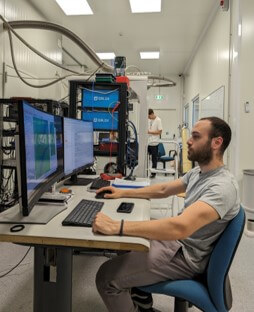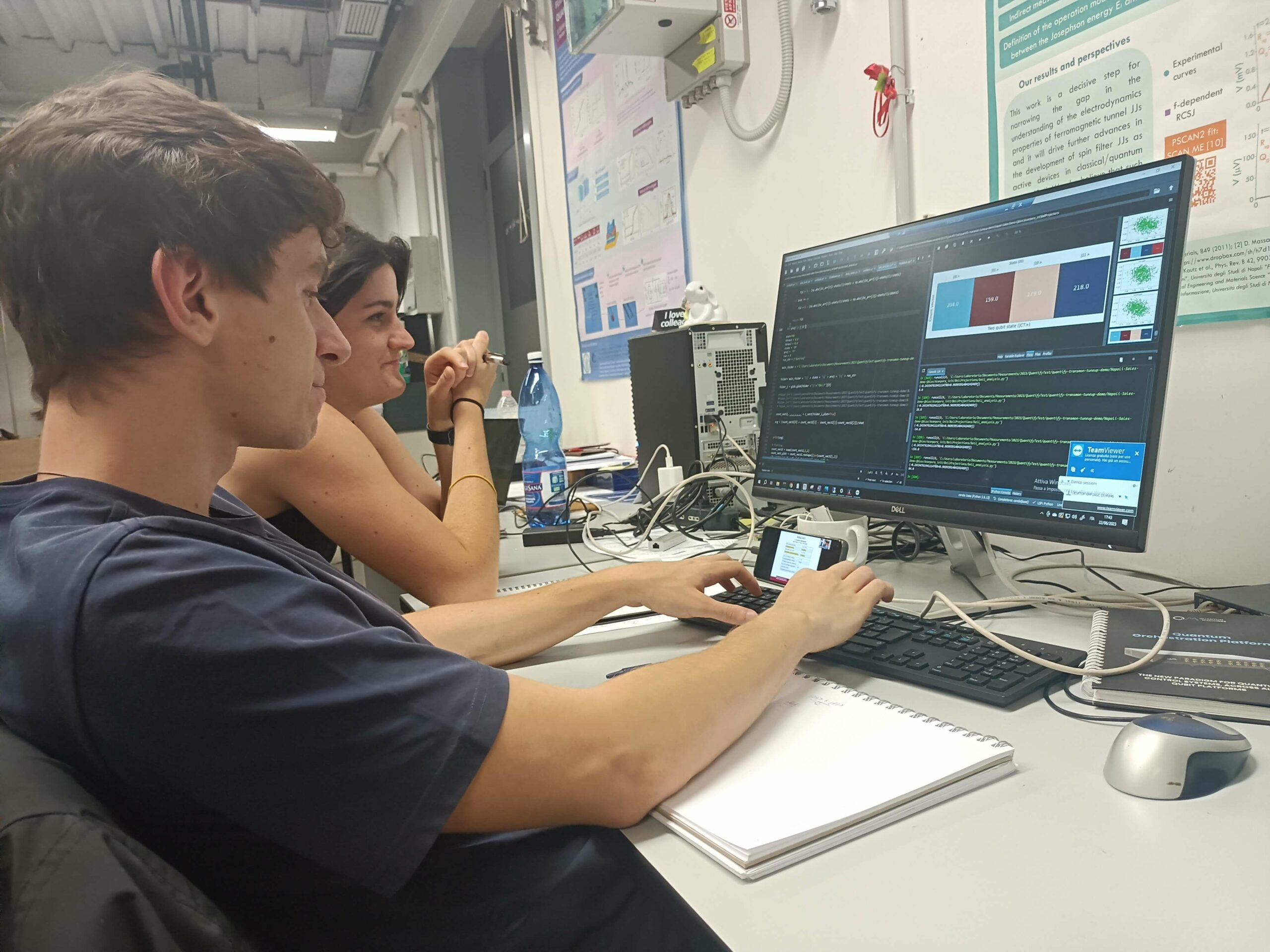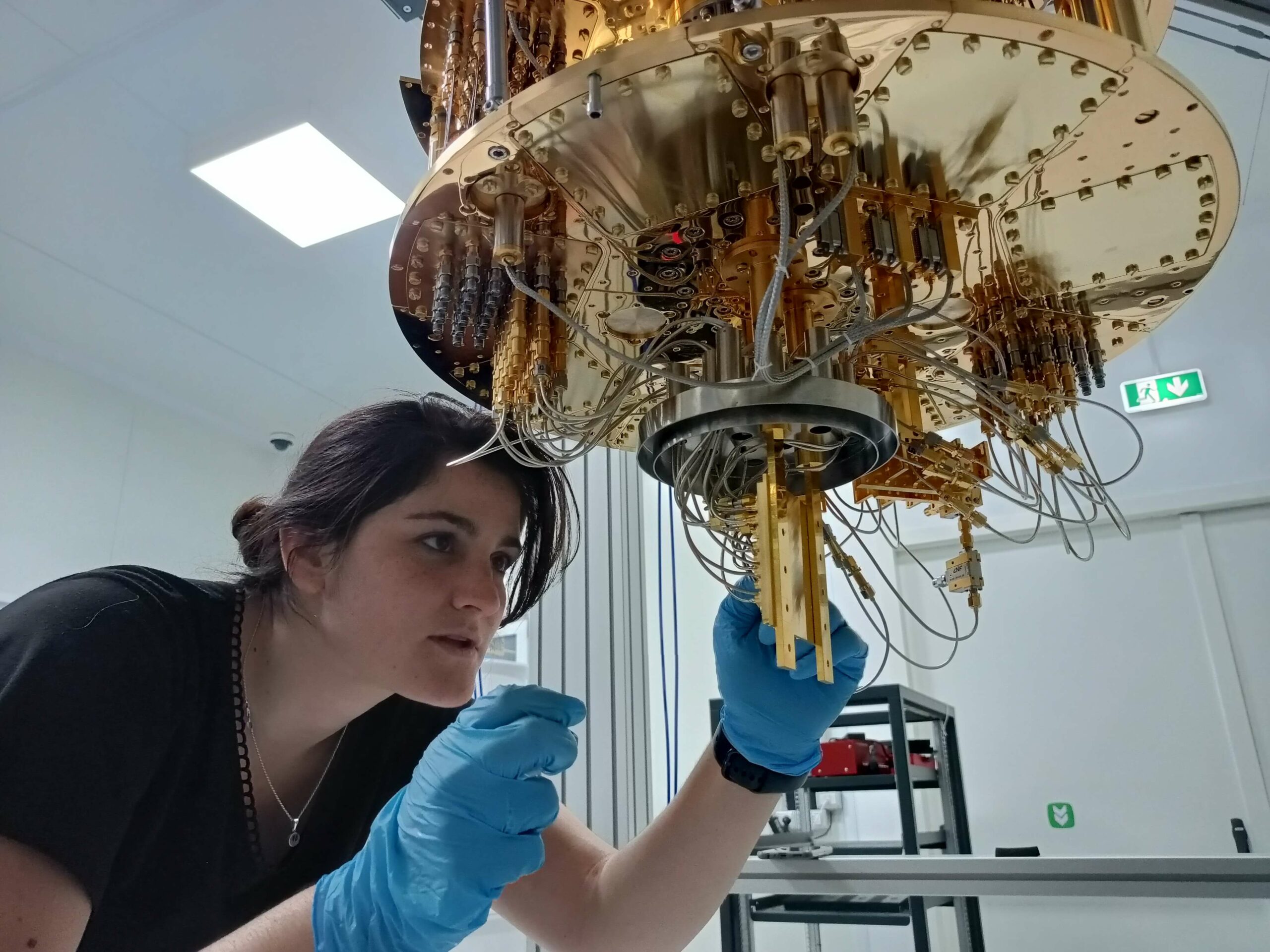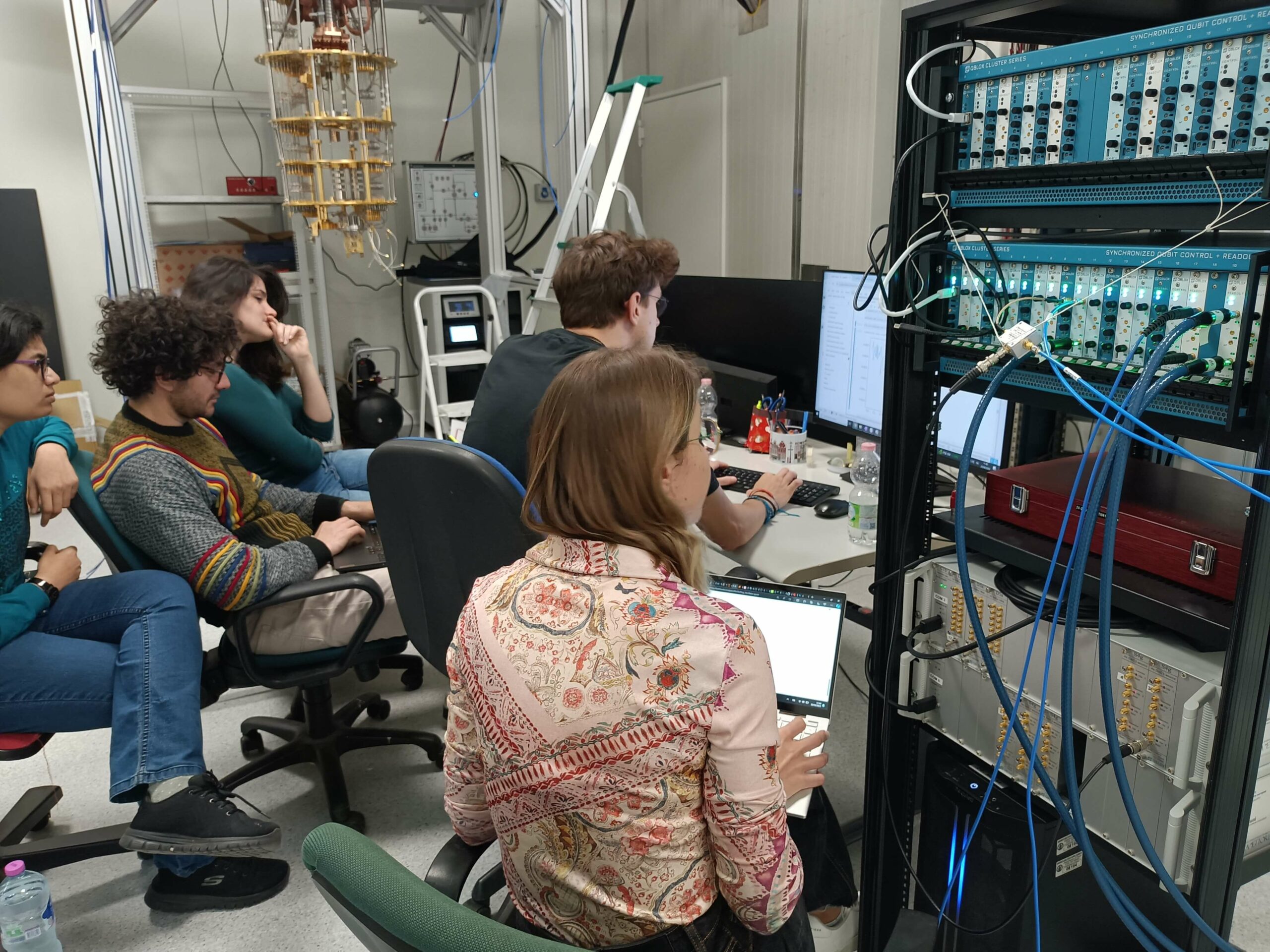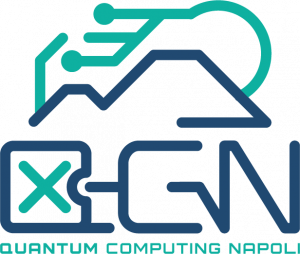Quantum Computation
Since 2019, when we measured for the first time a superconducting transmon qubit in Italy, the field of superconducting quantum computing (QC) in Italy and in our group has notably grown. The Quantum Computing Napoli (QCN) laboratory acquired expertise in characterizing coherence and fidelity performances in single and coupled superconducting transmon devices. We built an infrastructure to test superconducting quantum circuits self-designed by our team and commercially produced platforms.
The integration and the study of novel cryogenic amplification stages based on Josephson technology are also used to improve the readout of sQPs. In the frame of ICSC High-Performance, Big Data and Quantum Computing National Center (spoke 10), we are aiming in building the first academic superconducting QC node in Italy for the implementation of hybrid classical/quantum and fully quantum algorithms.
The possibility to run such experiments on a superconducting quantum processor (sQP) including+30 qubits, allows us to study the problem of coherence and gate errors in a Noisy Intermediate Scale Quantum (NISQ) device . As a first milestone in this roadmap, we have successfully run for the first time a hybrid classical/quantum error mitigation technique for correcting the measurement error in a sQP with up to 5 qubits . Nevertheless, large – scale applications of superconducting quantum technologies in QC requires a strong effort in finding novel solutions to scale the number of qubits in the same sQP. Control, readout and tunability of superconducting qubits requires bulky microwave lines and circuital components like SQUID that provides one of the main limitations in the qubits scaling . Josephson – based technology may provide a useful solution to the problem of both alternative scalable control and readout and tunability.
